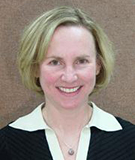AI Predicts Infant Age and Gender Based on Temperament
adrianaIt’s hard to tell the difference between a newborn boy and girl based solely on temperament characteristics such as the baby’s propensity to display fear, smile or laugh. But once babies reach around a year old that begins to change.
A new study in PLOS ONE used machine learning to analyze temperament data on 4,438 babies in an attempt to classify the infants by gender and age.
The results indicate it is far easier for computer algorithms to determine the age of a baby than it is for them to decipher a baby’s gender based off temperament data during the infant’s first 48 weeks of life.
However, once the babies passed 48 weeks of age, gender classification improved for the multiple algorithms considered, suggesting gender differences in infancy become more accentuated around this time.

“It is at least suggestive of a picture where temperament begins to differentiate by gender in a more powerful way around age one,” said Maria Gartstein, lead author of the study and a professor of psychology at Washington State University.
Previous research has investigated age and gender-based temperament differences in babies, but few if any studies have looked at the two variables together.


